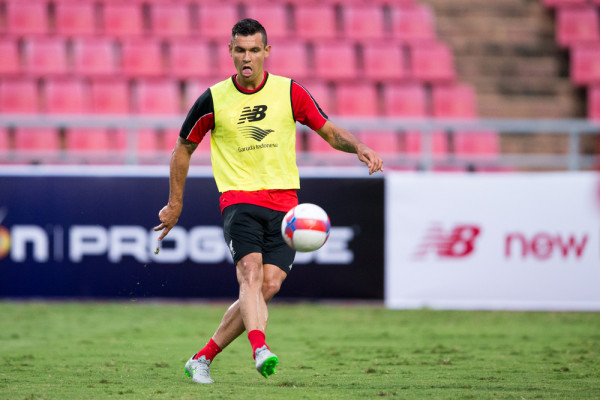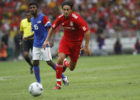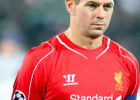Over the last couple of weeks I’ve written two blogs about the state of Liverpool’s squad as it currently stands. The first was an exploration of the defensive unit as a whole, looking at the players individually to see where their strengths and weaknesses are. Then I wrote about our attack and just how good it is. Both of those blogs were about me looking at the players, rather than talking about why improving them this summer is so important.
Liverpool’s defence has been consistently awful for the past four years. Surely Klopp will reinforce it this summer. [Bleacher Report] #LFC pic.twitter.com/OZaqzYhA07
— LFC Transfer Room (@LFCTransferRoom) March 1, 2017
As the days have gone by since I wrote those pieces I have realised that it’s also worth exploring the damage not having a strong defence is doing to any potential title challenge. What did the stats look like when Jürgen Klopp was at Borussia Dortmund? Did they differ significantly in his first two seasons to how they’ve been for us so far? More importantly from our point of view, how much did the Dortmund defence tighten up (or otherwise) the longer that the German was at the Westfalenstadion? I’ve tried to do some research to find out…
Klopp’s System Is The Key
A lot of Fenway Sports Group’s critics believe that they chose Jürgen Klopp as the replacement for Brendan Rodgers because he buys into their concept of developing youth and is, therefore, a ‘patsy’ for their refusal to spend money. That may well be true, I have simply no idea. What I do know, however, is that there’s a reason that the German prefers to work with young and hungry players rather than established superstars – his system is the the thing that matters more than anything else.
Sturridge doesn’t fit Klopp’s system at all. But neither would Ibrahimovic. Surely accommodating quality players has to come first?
— James Nelson (@_James_Nelson_) February 28, 2017
Young players don’t come with any baggage. They’re happy to buy into what a manager tells them to do, safe in the knowledge that a man who has won two Bundesliga titles and made the final of the Champions League probably knows more than they do. Players need to buy into the manner in which Klopp wants them to play hook, line and sinker or else weaknesses will expose themselves. The tricky thing is that younger players might well do what he wants, but they’re also less experienced and liable to make mistakes.
So why am I talking about the manager’s system? Because in Klopp’s world defending isn’t the job of just the defenders. It is the responsibility of the whole team to do their jobs at all times, closing down players, shutting off passing lanes and harassing players into making mistakes. Do that and the opposition won’t get loads of chances. We’ve seen that at numerous times this season; when this side plays well they really do play well and there’s not much the other side can do to cause problems. Yet a quick look at all of our results over the course of the season so far reveals that we’ve kept just eleven clean sheets in 36 games in all competitions.
@PaulSenior1 3 at Bournemouth, 2 at Burnley. We needed to score 18 to take 15 points from Sun/Hull/Leic/Pal/Burn. Chelsea needed 6.
— Philip Blundell (@PhilBlundell) March 7, 2017
To put that into context, we played two games less in January alone than we’ve managed clean sheets in total all season. No team goes an entire league campaign without conceding goals, but that’s pretty shameful. Weirdly, three of our clean sheets have come against Everton, Spurs and Manchester United, suggested that Klopp’s team are better at stopping the opposition from scoring when they see it as a big game that they need to remain concentrated in. There’s no question that, as my blog about our defence suggested, the personnel within that defence are a problem. But perhaps the system as a whole could do with re-structuring slightly if the players can’t stay focussed for 90 minutes at a time against the lesser lights of the league.
A Look At The Stats
Against Crystal Palace, Bournemouth and Sunderland away from home we scored nine goals, yet we took just four points. At Anfield we netted two apiece against West Ham and Swansea but got just one point out of six for our troubles. That’s absurd. A team with hopes of mounting a title challenge can’t need to score more than thirteen goals against such dross in order to walk away with all fifteen points available. For us to score a baker’s dozen against the five of them and take a mere five points has to be troubling for the manager. Add ten points to our current tally and we’re in second place, six points clear of Spurs and just four shy of Chelsea.
Oh, what a bloody surprise. Liverpool concede goal from first proper attack.
— human row (@adtechpeddler) March 4, 2017
The big question Klopp needs to ask is whether it’s a systematic issue or a personnel one. The stats would suggest that’s it’s likely to be the latter. In 2013-2014 we conceded an average of 1.3 goals per game. In 2014-2015 we conceded an average of 1.3 goals per game. In 2015-2016 we conceded an average of 1.3 goals per game. So far in In 2016-2017 we’ve conceded an average of 1.3 goals per game. During that time we’ve had two different managers in charge and although they like to play similar systems they’re hardly identical. Yet during that time there have been constants in playing staff, including Simon Mignolet in goal, Dejan Lovren at centre-back (from 2014-2015 onwards) and Nathaniel Clyne at right-back (from 2015-2016).

mooinblack / shutterstock.com
As I said before, you don’t go a season without conceding a goal. Yet we’re effectively starting matches one-nil down. If the midfield and attack isn’t functioning properly then we’re liable to lose more matches than we win. Obviously stats don’t quite work like that, they average themselves out over the course of the season. But it’s just as bad to say that if we play five matches and keep four clean sheets then we concede five goals in the fifth game. Whichever way you break it down doesn’t look good. It’s even more frustrating that we concede so many goals to weaker opponents. So far this season we’ve conceded 19 goals in 11 games against the bottom seven teams, losing four of them.
Most #LFC goals conceded after 26 games since 1962:
41 1964/65
37 1992/93
36 2015/16
34 2012/13
33 2016/17— Dan Kennett (@DanKennett) February 27, 2017
So how does all of that compare to his time at Dortmund? The year before he arrived at the Westfalenstadion BvB conceded an average of 1.8 goals per game in the league. In his first season in charge this dropped down to 1.08 but in season two it crept up to 1.2. In his third season, and the the one they won the league for the first time, this dropped to a very impressive 0.6 goals per game. They defended the title the following season with a goals per game average of 0.7, but in his fifth season they came second by 25 points as their gpg average shot back up to 1.2. They were 19 points short in season six, conceding 1.1 goals per game. We all know of the troubles he endured during his final season, but that was more because his attack stopped firing as his defence once again conceded an average of 1.2 goals per game.
What Changed?
It’s an easy enough question to ask but is perhaps slightly harder to answer. Klopp signed Łukasz Piszczek is the summer of 2010, playing him in a defensive position throughout that season. He also bought Shinji Kagawa and played him in midfield for 28 games in all competitions. Antônio da Silva also arrived and played 27 times in the middle of the park. So was it all about the signings? Possibly. More likely, though is the idea that his players had had two seasons of getting used to his system that he’d also tweaked in order to take advantage of their strengths and mitigate their weaknesses. Combining that with the addition of specific players was enough to bring home the title.
Klopp needs to spend the entire Liverpool transfer budget on defenders..
— AYOOLA (@ayaj_) February 27, 2017
The following summer he lost Nuri Şahin to Real Madrid but didn’t rest on his laurels. Instead he brought in Ivan Perišić and İlkay Gündoğan playing them 24 times apiece in the Bundesliga. He was now working with a squad that understood his methods and had supplemented his players with others, so it’s little surprise that they went on to retain the title. The team worked just as hard defensively, conceding a mere 0.1 goal per game more than they did the previous season. Will he be able to get his Liverpool team working in the same manner moving forward?
Conclusion
Jürgen Klopp will know that keeping things tight at the back was crucial for his two Bundesliga title wins. The problem he’s currently got at Liverpool is that we don’t have a player delivering 16 goals as Lucas Barrios did in 2010-2011 or a 22 goal a season man as Robert Lewandowski was the following year. We’ve got a front-line that knows how to cause defences problems when working together, but it means sacrificing defensive solidity to allow them to swarm forward. That, combined with personnel in the back four who aren’t good enough is where our problems lie.
IT’S THE DEFENCE, STUPID
— Dan Kennett (@DanKennett) February 27, 2017
I wouldn’t be surprised to see Liverpool move for a new goalkeeper, centre-back and box-to-box midfielder this summer. Klopp will have seen the weaknesses at the back and know that he has to take care of them if we’ve got any hope of competing for the title. The quality of those players will depend entirely on whether or not we’re able to qualify for the Champions League. He’ll then have to balance the demands of that competition with the Premier League. Can he do it? He’s done it before. The important thing is that he remembers why it worked last time. In the words of Dan Kennett, who inspired the title of this piece, it’s the defence, stupid!



